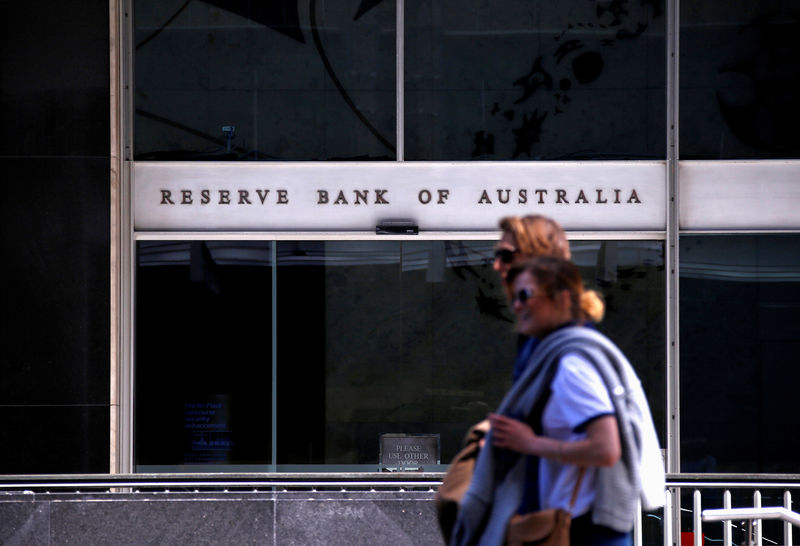By Swati Pandey
SYDNEY (Reuters) - Australia won't rule out unconventional monetary policy to revive its economy, but a senior central banker said on Tuesday that such a prospect was unlikely as the recent rate cuts are expected to support growth.
The Reserve Bank of Australia (RBA) reduced its benchmark cash rate to 1% following back-to-back easings in June and July. It has since pledged to keep rates low for longer, sending yields across the bond curve tumbling to depths not seen before.
New Zealand's central bank took a radical stance last week by cutting interest rates a steep 50 basis points and even flagging the risk of going nuclear by taking rates below zero.
"I think the need for such policies here is unlikely but certainly possible," said RBA's Assistant Governor Christopher Kent, responding to questions around the possibility of negative interest rates or quantitative easing in Australia.
Financial markets <0#YIB:> are pricing in two more RBA cuts with the cash rate seen at 0.5% by early next year.
"What we've been doing is studying overseas experience, a prudent thing for us to do," Kent said in a speech in Sydney, echoing RBA chief Philip Lowe who on Friday laid out the scenarios in which the bank might drag interest rates to zero.
Policymakers around the world are struggling with lukewarm inflation and tepid wage growth even as unemployment rates in many developed economies have fallen to record lows. The Sino-U.S. trade war has further complicated matters by raising fears of a world recession, prompting financial markets to price in aggressive easing by the U.S. Federal Reserve.
Since the global financial crisis, the Fed, the European Central Bank, the Bank of England and the Bank of Japan have all used quantitative easing - essentially, a money-printing campaign to boost liquidity across the banking system and broad economy.
"One of the lessons we have taken is that not all of those (unconventional) policies are appropriate for Australia. It depends very much on the circumstances you are in," Kent said.
Attempting to allay concerns about the effectiveness of monetary policy as interest rates approach zero, Kent said the policy transmission was "working in the usual way".
He noted that the easier stance of monetary policy in Australia has led to a decline in the cost of funding in corporate bond markets and for banks while supporting equity prices.
In addition, "the decline in interest rates in Australia has contributed to the depreciation of the Australian dollar," the assistant governor said.
The Aussie

"That broad-based easing in financial conditions in Australia will provide some additional support to demand in the period ahead," Kent added.